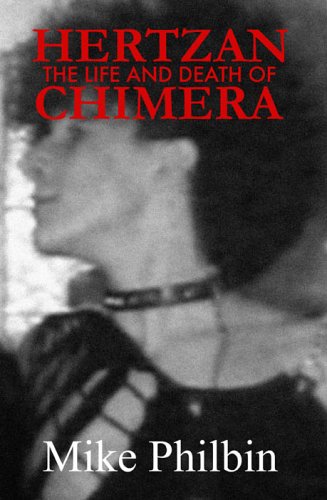
The Life and Death of Hertzan Chimera
by Mike Philbin
3 out of 5
For over a decade Hertzan Chimera terrorized the online writing world both with his brutal brand of fiction and his brutal personality. That was until August 2004, when Mike Philbin, Chimera’s secret identity, killed off the fictional writer and decided to write under his real name. Which leads us to The Life and Death of Hertzan Chimera, Philbin’s much-delayed autobiography on his literary creation.
In short, The Life and Death of Hertzan Chimera is basically divided up into two halves, the first being a history on Chimera and how he came to be, the last being a series of interviews where Chimera acts as both interviewer and interviewee.
The reason this reviewer picked up the book was more so not because I was a fan of Chimera’s work—I had only read a handful of short stories; I will state that based on what I read, I enjoyed Chimera’s writing and was more than impressed with his insane amount of creativity—but because I was interested in getting a behind-the-scenes look at what most would consider a demented psyche. But I was only partially satisfied in my quest. The first half of the book gave insight into Chimera’s childhood, who he was and how he came to be, which was interesting but wasn’t really explored in the detail I had hoped. After each section I was left wanting a little bit more. But this is also coming from a guy who enjoys long-winded fiction and detailed explanations so it could be just me.
The latter half, the interviews, left me cold, I’m afraid. The ones where Chimera himself was being interviewed were fine and had a place in the book, but the ones where he was interviewer read more like filler than needed information. As I read the interviews, one of the biggest things I kept waiting/hoping for was an explanation for Chimera’s distaste with the current state of horror and, more importantly, his hatred for the mass market press. Though these were explained, they were explained briefly and I was hoping for something more in depth, a more thorough argument about horror being a lost art and all that’s left is cookie cutter fiction.
On the whole, I would recommend this book to those looking for a glimpse into the mind of Chimera and what made him tick. What I am looking forward to, however, is where Mike Philbin is headed now that he’s free of Chimera and is able to just be himself without always putting on a show. That, of course, is the secret to any great writing: honesty.
Soon Philbin will have his day.
